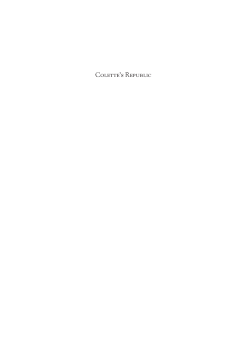
Additional Information
Book Details
Abstract
In France’s Third Republic, secularism was, for its adherents, a new faith, a civic religion founded on a rabid belief in progress and the Enlightenment conviction that men (and women) could remake their world. And yet with all of its pragmatic smoothing over of the supernatural edges of Catholicism, the Third Republic engendered its own fantastical ways of seeing by embracing observation, corporeal dynamism, and imaginative introspection. How these republican ideals and the new national education system of the 1870s and 80s - the structure meant to impart these ideals - shaped belle époque popular culture is the focus of this book. The author reassesses the meaning of secularization and offers a cultural history of this period by way of an interrogation of several fraught episodes which, although seemingly disconnected, shared an attachment to the potent moral and aesthetic directives of French republicanism: a village’s battle to secularize its schools, a scandalous novel, a vaudeville hit featuring a nude celebrity, and a craze for female boxing. Beginning with the writer and performer Colette (1873–1954) as a point of entry, this re-evaluation of belle époque popular culture probes the startling connections between republican values of labor and physical health on the one hand, and the cultural innovations of the decades preceding World War I on the other.
Patricia A. Tilburg is an Associate Professor of History at Davidson College.
“... a finely crafted study…The wealth of her scholarly evidence aside, Tilburg develops [her] arguments with magisterial care, resulting in a book that deserves the attention of all students of contemporary French history. Highly recommended.” · Choice
While building on the work of [other scholars], Tilburg makes her own significant contribution to the field by combining a study of Colette’s life and career with an analysis of the political culture of republicanism. Her sources are varied and the style is highly readable. The result is a lively and rich portrait of Belle-Époque France.” · H-France Review
“Tilburg’s thoughtful work deserves a broad audience of historians interested in the sizable historiography in modern French culture and its gendered implications. It addresses many … critical issues… [and] is thus a valuable addition to a growing body of scholarship about republicanism, women, and popular culture in the long French fin de siècle.” · The Journal of Modern History
“ [A] thoroughly readable volume…at once a fine, nuanced work of cultural history, and an illuminating reflection on Colette.” · French Studies
"This intelligent, imaginative cultural history... has much to teach us about a period, a person, the dynamic relations between them, and the reverberations of that dynamic into the present." · French Review
“[The auhor] revises a scholarship that frequently insists upon Colette’s exceptionalism and provides a nuanced and engaging portrait of Colette and of the Third Republic.” · French Politics, Culture & Society
